Wie oft sind wir geschritten (Heia heia Safari)
Volkslieder » Kriegslieder » Soldatenlieder » 1919-1933: Weimarer Republik

Wie oft sind wir geschritten auf schmalem Negerpfad, wohl durch der Wüste Mitten, wenn früh der Morgen naht. Wie lauschten wir dem Klange, dem altvertrauten Sange der Träger und Askari: Heia , heia, Safari.
Steil über Berg und Klüfte, durch tiefe Urwaldnacht, wo schwül und feucht die Lüfte und nie die Sonne lacht. Durch Steppengräserwogen sind wir hindurchgezogen mit Trägern und Askari: Heia, heia, Safari.
Und saßen wir am Feuer des Nachts wohl vor dem Zelt, lag wie in stiller Feier um uns die nächt’ge Welt. Und über dunkle Hänge Tönt es wie ferne Klänge von Trägern und Askari: Heia, heia, Safari.
Tret ich die letzte Reise, die große Fahrt einst an, auf, singt mir diese Weise statt Trauerliedern dann. Daß meinem Jägerohre, dort vor dem Himmelstore, Es klingt wie ein Halali: Heia, heia, Safari.
Text: A. Aschenborn Musik: Robert Götz – 1921 -> Bündische Jugend .
Liederthema: Bündische Jugend , Soldatenlieder Liederzeit: vor 1921 : Zeitraum: 1919-1933: Weimarer Republik Schlagwort: Neger • Rassismus und Kolonialismus Orte: Afrika

Anmerkungen zu "Wie oft sind wir geschritten (Heia heia Safari)"
„ Heia Safari“ war ein 1920 publiziertes , kriegsverherrlichendes Jugendbuch von Paul von Lettow-Vorbeck, das von den Nazis in die Grundbuchliste für Schülerbüchereien aufgenommen wurde und noch bis 1952 in neun Ausgaben mit einer Gesamtauflage von 281.000 Exemplaren erschien.
Lettow-Vorbeck befahl in Deutsch-Ostafrika unmenschliche Grausamkeiten an der dortigen Bevölkerung: „Das Vorgehen der Truppen, bei denen Plünderungen, Vergewaltigungen, Brandschatzungen, Morde, Tötungen und Folterungen von Gefangenen und Verwundeten und Zwangsrekrutierungen an der Tagesordnung waren, erinnerte an die Kriegsführung längst vergangener Jahrhunderte.“
Die Deutschen rekrutierten Tausende von Afrikanern als Trägersklaven, was viele nicht überlebten. Über 100.000 kamen dabei ums Leben. Flüchtende Träger und desertierende afrikanische Soldaten wurden von Lettow-Vorbecks Soldaten erschossen, öffentlich durch Erhängen hingerichtet oder ausgepeitscht. Verdächtige wurden in Ketten oder Halseisen gelegt und teilweise mit Telefondraht aneinandergebunden. Die schwarzen Soldaten nannten Lettow-Vorbeck den „Herrn, der unser Leichentuch schneidert“. (Mehr zu den Kriegsverbrechen Lettow-Vorbecks )
"Wie oft sind wir geschritten (Heia heia Safari)" in diesen Liederbüchern
in: HSLB_Neesen (ca. 1951) — Liederbuch der Bundeswehr (1962, 1976, 1991) – Liederbuch der Fallschirmjäger (1983)
Vergleiche auch:
- Heia Heia bzw Heie Heia und Heie bezeichnet in der Kindersprache die Wiege , die auch Boje oder Buje und Hozze heißt. daher heizen oder in die…
- Heia wiwi Suse Heia wiwi Suse Kätzchen det will muse Moßt et off det Schwänzche schlo do konn et net muse go aus Siegen 1896 , durch Dr…
- Heia bula Wieglestoß Heia bula Wieglestoß übers Jahr ist´s Chindle groß bei: Simrock 220
- Heia Bola Zucker wolle mer hola Heia Bola Zucker wolle mer hola Zucker, Rosine und Mandelkern esse die kleine Bube gern in Frankfurter Kinderleben (1929 Nr. 15)
- Heia Popeia was soll ich euch sage Heia Popeia was soll ich euch sage de Vater chauft mer en goldige Wage en goldig Wage sechs Schimmeli dri und dann cha mi Buebli…
Die Liedarchäologen
Zeitreisen durch die Geschichte
- Wir Liedarchäologen
- Der große Traum von Freiheit
- Stärker als der Tod
- Nur Freiheit oder Tod
- Der Feind ist über´n Rhein geschlagen
- Zwischen Michel & Germania
- Noch ist Polen nicht verloren
- Ernst Ludwig Heil!
- O wag es doch nur einen Tag
- Heimat über´m Meer
- Aoysgedaytsht - Jiddische Lieder
- Zwischen Demokratie und Diktatur
- Hinter der Mauer
- Geschichte erhören (Lehrer-Workshop)
- Ein Leben in Liedern (Geburtstags-Zeitreise)
- Im Namen Gottes?
- Sein Lob klingt durch die Zeit
- In seinem Lob verbunden
- Gott aller Zeiten
- In dunklen Zeiten brennt ein Licht
- 1780-1800: Zeit der Französischen Revolution
- 1800-1815: Befreiungskriege
- Vormärz & 48er Revolution
- Deutsche Polenlieder
- Kaiserreich
- Deutsche Koloniallieder
- Jiddische Lieder
- Weimarer Republik und Nationalsozialismus
- Nachkriegszeit & Bundesrepublik
- Liedarchäologen-Shop
- Suche & Sitemap
Heia Safari
Wie oft sind wir geschritten auf schmalem Negerpfad, wohl durch der Wüste Mitten, wenn früh der Morgen naht. Wie lauschten wir dem Klange, dem altvertrauten Sange der Träger und Askari: Heia, heia, Safari.
Steil über Berg und Klüfte, durch tiefe Urwaldnacht, wo schwül und feucht die Lüfte und nie die Sonne lacht. Durch Steppengräserwogen sind wir hindurchgezogen mit Trägern und Askari: Heia, heia, Safari.
Und saßen wir am Feuer des Nachts wohl vor dem Zelt, lag wie in stiller Feier um uns die nächt’ge Welt. Und über dunkle Hänge Tönt es wie ferne Klänge von Trägern und Askari: Heia, heia, Safari.
Tret ich die letzte Reise, die große Fahrt einst an, auf, singt mir diese Weise statt Trauerliedern dann. Daß meinem Jägerohre, dort vor dem Himmelstore, Es klingt wie ein Halali: Heia, heia, Safari.
Hans Aschenborn 1921

Return to “Translation help: Breaking the Sound Barrier”
- Axis History
- ↳ Life in the Third Reich & Weimar Republic
- ↳ Propaganda, Culture & Architecture
- ↳ Music of the Reich
- ↳ Women in the Reich
- ↳ Heer, Waffen-SS & Fallschirmjäger
- ↳ Model building
- ↳ U-Boats
- ↳ Kriegsmarine surface ships and Kriegsmarine in general
- ↳ Luftwaffe air units and Luftwaffe in general
- ↳ Legion Condor
- ↳ German Strategy & General German Military Discussion
- ↳ NSDAP, other party organizations & Government
- ↳ The Phil Nix SS & Polizei section
- ↳ The Dieter Zinke Axis Biographical Research Section
- ↳ Japan at War 1895-1945
- ↳ Italy under Fascism 1922-1945
- ↳ Minor Axis Nations
- ↳ Finland
- ↳ Foreign Volunteers & Collaboration
- ↳ Holocaust & 20th Century War Crimes
- Axis Equipment
- ↳ Aircraft
- ↳ Fortifications, Artillery, & Rockets
- ↳ The Ron Klages Panzer & other vehicles Section
- ↳ Panzer & other vehicles - Photo threads
- ↳ Small Arms
- ↳ Other Equipment
- Militaria & Collecting
- ↳ Axis Awards
- ↳ Militaria for sale
- ↳ Axis Documents, Feldpost numbers, Postcards & Other Paper Items
- ↳ Axis Uniforms, Headgear & Insignia
- ↳ Other WW1 & WW2 Militaria
- ↳ For Sale & Wanted
- ↳ Reproductions Sales
- The Allies & the Neutral States
- ↳ China at War 1895-1949
- ↳ France 1919-1945
- ↳ Poland 1919-1945
- ↳ The Soviet Union at War 1917-1945
- ↳ The United Kingdom & its Empire and Commonwealth 1919-45
- ↳ USA 1919-1945
- ↳ The Allies and the Neutral States in general
- World War II and Inter-War Era
- ↳ WW2 in Africa & the Mediterranean
- ↳ WW2 in Eastern Europe
- ↳ WW2 in Western Europe & the Atlantic
- ↳ WW2 in the Pacific & Asia
- ↳ Winter War & Continuation War
- ↳ Spanish Civil War & Legion Condor
- ↳ Economy
- ↳ First World War
- ↳ Imperial Germany
- ↳ German Colonies and Overseas Expeditions
- ↳ Austria-Hungary 1867–1918
- ↳ The end of the Ottoman Empire 1908-1923
- ↳ Other eras
- Research Help
- ↳ Translation help: Breaking the Sound Barrier
- ↳ Books & other Reference Material
- ↳ Archives
- Other areas
- ↳ Movies, games & other fiction
- ↳ What if
- ↳ Reenactment
- Board index
- All times are UTC
- Architecture and Design
- Asian and Pacific Studies
- Business and Economics
- Classical and Ancient Near Eastern Studies
- Computer Sciences
- Cultural Studies
- Engineering
- General Interest
- Geosciences
- Industrial Chemistry
- Islamic and Middle Eastern Studies
- Jewish Studies
- Library and Information Science, Book Studies
- Life Sciences
- Linguistics and Semiotics
- Literary Studies
- Materials Sciences
- Mathematics
- Social Sciences
- Sports and Recreation
- Theology and Religion
- Publish your article
- The role of authors
- Promoting your article
- Abstracting & indexing
- Publishing Ethics
- Why publish with De Gruyter
- How to publish with De Gruyter
- Our book series
- Our subject areas
- Your digital product at De Gruyter
- Contribute to our reference works
- Product information
- Tools & resources
- Product Information
- Promotional Materials
- Orders and Inquiries
- FAQ for Library Suppliers and Book Sellers
- Repository Policy
- Free access policy
- Open Access agreements
- Database portals
- For Authors
- Customer service
- People + Culture
- Journal Management
- How to join us
- Working at De Gruyter
- Mission & Vision
- De Gruyter Foundation
- De Gruyter Ebound
- Our Responsibility
- Partner publishers

Your purchase has been completed. Your documents are now available to view.
Geschichtspolitik im Fernsehen. Die WDR-Dokumentation „Heia Safari” von 1966/67 über Deutschlands Kolonialvergangenheit
- Eckard Michels
Trotz der geringen Bedeutung der Kolonien für Deutschland bis 1918 entfachte Ralph Giordanos äußerst kritische Darstellung der nationalen Kolonialgeschichte, ausgestrahlt zur besten Sendezeit im Oktober 1966 im Fernsehprogramm der ARD, eine scharfe öffentliche Kontroverse. War die Rolle der Kolonialvergangenheit im kollektiven Gedächtnis der Deutschen doch größer als eigentlich zu erwarten? Welches Geschichtsbild hatte sich von dieser Epoche erhalten? Und inwiefern waren die Reaktionen auf den Film von der erinnerungskulturellen Gesamtkonstellation in der Bundesrepublik beeinflusst? Diesen Fragen geht Eckard Michels in seinem Beitrag ebenso nach wie den „Gelegenheiten zur Meinungsmanipulation“, die dem Genre der historischen Fernsehdokumentation eigen sind.
In October 1966 the public broadcaster WDR (Westdeutscher Rundfunk) screened the TV documentary “Heia Safari”, written by the journalist Ralph Giordano. It caused one of the greatest TV scandals in the Federal Republic during the 1960s. The program painted a very gloomy picture of Germany's colonial presence in Africa. It also attacked the unbroken positive memories of this chapter of Germany's imperial past which still prevailed half a century after the loss of the colonies. The documentary also attests to the artistic freedom journalists enjoyed with public-owned TV stations during the mid-1960s and to a culture of provocation favoured by publicists such as Giordano, who aimed at stirring up discussions and promoting their own careers. A comparison with other historical TV documentaries produced by WDR during this period reveals parallels in the reactions of the audience.
© Oldenbourg Wissenschaftsverlag
- X / Twitter
Supplementary Materials
Please login or register with De Gruyter to order this product.
Journal and Issue
Articles in the same issue.
- Why Subscribe?
- Subscription Packages
- Newsletter Subscription
- Middle East
- Iran Press Release
- Week in Review
- Performance
- Human Rights
- Environment
- Iran Protests
- In Memoriam
- Video Interviews
- Video Reports
- Inside the Story
- COVID-19 Positivity Messages
- Featured Podcasts

Elderly Iranians Feel At Home At Noor Active Living in Santa Clara

By Julie Ershadi
Mahin Afkhami worked for an affiliate of Iran’s information and tourism ministry in the 1970s when the Revolution broke out. She and her husband, who had four children studying at universities in the U.S., found themselves unable to send them money to apply for green cards. The couple traveled west to sort out the status of their children’s visas, in what they believed would be a brief trip. They ended up leaving behind everything they had in Iran: their belongings, their wealth, and life as they knew it.
That was 38 years ago. Today, like the hundreds of thousands of Iranians who lived through the revolution and moved abroad, Afkhami speaks proudly of the efforts she made to rebuild her life and ensure her children’s success. Yet as she has advanced in years, she has made the decision to move to an assisted living facility rather than rely on her offspring.
Unlike many elders in the Iranian expatriate community who live with their adult children, Afkhami – who shies away from disclosing her age – is a resident of Noor Active Living , an assisted living facility located in Santa Clara , California. The idea behind Noor is to provide an environment that would be familiar to an Iranian population of patients, who often feel isolated receiving care outside of their home country and away from their families.
“My children want me to go and live with them, but I refuse,” she says in a recent afternoon. “I would be interrupting their lives. They come to visit me and I go over there, but I’d rather have my privacy and live here.”
Noor Active Living was founded with the purchase by a group of philanthropists of an existing assisted living center in need of major renovations in 2009. The idea was to create a place for elderly Iranians in the United States, based on the Kahrizak Charity Foundation , a nonprofit that provides care and a living environment for the elderly and handicapped in Iran.
The driving force at Noor is its executive director, Nazila Safari, a medical doctor in the U.S. and Iran. Like virtually all of the residents and staff at Noor, Safari is an Iranian immigrant who had to start over in the United States.
Inside the Noor facility, the walls are decorated with calligraphy and traditional paintings. A small study contains a library of books in Persian , including War and Peace in translation, a book on Afghan cuisine , history books, and poetry. On all the floors are authentic Persian rugs , donated by one of the center’s patrons.
In the dining hall, the Iranian-born chef prepares a lunch of ghormeh sabzi (a herb-based stew) for the 12 residents and staff members. Even ta’arof , the Iranian form of etiquette, is present, as when the site manager invites a visiting reporter to stay for lunch.
Outside is a patio lined with persimmon trees and palm fronds. There, accompanied by three caretakers and another resident, Afkhami tells her story of leaving Iran and coming to the United States. She produces an issue of Kayhan International , dated June 3, 1976. Page 3 features her promotion to deputy director for technical and planning affairs at the Tourism Facilities Compan of Iran.
The group is seated at a patio table spread with Iranian tea, a box of gaz nougat (candy) fresh from Esfahan , and other traditional snacks. Everyone exchanges knowing glances and nods somberly as Afkhami describes how hard it was to rebuild her and her family’s lives from the ground up.
“I came here with just one small suitcase of things for myself because I didn’t have plans to stay,” she says. “But things got worse. Me and my husband were both in good positions over there, so we would’ve been killed. We never went back.”
“The children were working, going to school, and had a lot of expenses,” she recalled. “It was just the six of us working. Hard.”
Noor’s executive director Safari qualified as a doctor in Iran. But when she came to the United States 22 years ago, her degree was not recognized, and she had to attend U.S. medical school to continue her practice. While in school, she took a job as a live-in nurse with an elderly couple.
“At that time, I didn’t have anybody here,” she says. “So they became my parents, my grandparents, my whole family.”
Alone in a foreign country, she developed a close bond with the family that would change the course of her life.
“Their kids moved out,” she recalls. “I got married and took the elderly woman with me until I could find a place to put her. I noticed all of these assisted living places. I was looking for which one would give her as much love and support as I was giving her.”
It was during her search for a care facility that Safari discovered a pressing situation: here and there, solitary elderly Iranians living in facilities where they related to no one. “There would be one or two Iranians. When they would see me, they would say, ‘Oh my God, you speak Farsi ! Nobody understands me here, I don’t like the food – this is not good!’ It was bothering me,” she says.
Safari started going to assisted living homes in the little free time she had between work and medical school. She wanted to spend time with these elderly Iranians who had been alone up until then. She would sit with them at the care facilities where they lived, translate their words when necessary for the nurses, and spend time with them when their children weren’t available.
As she became more deeply involved in the field of elderly care, Safari helped to open a Sunrise Senior Living branch in Sunnyvale , California, a town adjacent to Santa Clara. According to the company’s website, Sunrise operates internationally with 315 facilities in the United States, Canada and the United Kingdom .
Opening the Sunnyvale branch got Safari noticed by a group of directors hoping to start their own assisted living community, a not-for-profit facility created with the needs of elderly Iranians in mind. They asked her to help open Noor in 2009, and she agreed. She supervised renovations on the building that the group had acquired, but declined to run the facility, asking them instead to find someone else as she pursued her own professional activities.
After the completion of renovations in 2011, the facility sat unused for two years while the board searched for a substitute for Safari. They approached her again, this time with success. Safari has been director of Noor Active Living since 2013.
As a not-for-profit organization, Noor relies on donations from board members and community groups, as well as the fees charged to its residents. These funds cover expenses, and do not earn a profit for Safari and her staff, which is composed almost entirely of recent Iranian immigrants. The overarching aim, they say, is the respect, comfort and longevity of their patients, who have traveled so far and, in many cases, given up a great deal in the face of political turmoil in Iran.
“They had their independence, their house, their job, their respect in Iran,” Safari says. “They were looking forward to retiring there, going to the supermarket and speaking their own language, negotiating all of that. All of a sudden, they’re an immigrant, they’re brought to a new place where they can’t go anywhere or even speak the language.”
Chewing on gaz and sipping Iranian tea, Noor’s staff members echo the same sentiment that Safari described: what they do is more than a job – it is the love and care of the elderly members of their community, who are living thousands of miles away from the place they all call home. Afkhami, for her part, speaks warmly of the life she lives at Noor.
“We had everything over there,” she says, remembering her life in Iran before the revolution. “Now, this is the best place I could be. It is home.”
More from KayhanLife

Iran Regime-Backed Houthis Say Their Missiles Hit Ship in Red Sea

UN High Commissioner Calls for the Immediate and Unconditional Release of...

Russia’s Defence Minister Meets Iranian Counterpart to Discuss Expansion of Military...

Revolutionary Guards’ Intelligence Arm Bans Expressions of Support for Israel In...

Iran Says Crew of Israel-Linked Ship to Be Released

Iran Should Question Effectiveness of Weapons After Failed Israel Attack, Pentagon...

- [Kayhan Life Privacy Policy]
Privacy Overview
Go on Safari!
Immerse yourself in Africa’s essence at Safari West! Climb aboard a safari vehicle and adventure among herds of giraffes, wildebeest, cape buffalo, zebras, and other African hoofstock. Along the drive, guests will have the opportunity to stop and observe the majestic rhinos. During the tour, encounter cheetahs, primates including lemurs, and birds from different regions of the world.
Join us in our mission to promote conservation and impart knowledge that enables every person to make well-informed choices for the environment and wildlife. Join us – you’re the vital element in this extraordinary journey!
Immerse in Nature. Educate and Engage. Advocate for Conservation! Advanced Reservations Required Book Now
- Good to Know
- Pricing & Times
- Wild Manners
- Accessibility
Age Requirement
For the safety and comfort of all our guests, children must be at least 4 years old to participate in the Classic Safari Adventure. Many of our Private Adventures are exempt from age restrictions.
Top Seat Height Requirement
For the safety of our guests, children 4 and up wishing to take a turn on the top seat must be at least 45 inches tall .

Gratuity and Tipping Policy
If you enjoyed your safari, feel free to tip your guide. They work hard and appreciate the recognition. Please Note : If you reserved a private vehicle or made a group reservation for 10 or more, a 10% service charge is included.
Cancellation Policy
We are more than happy to help you reschedule your exploration or provide you a gift card for the amount that was charged so that you can reschedule at your leisure. Please note that your gift card is entirely transferable, should you choose to gift it to a loved one or donate it to a charity or other organization instead.
Pets are not allowed at Safari West. If you have a pet that is not a service animal, we ask that you respect the important work of service animals by not claiming that your pet is a service animal. Please see the Americans with Disabilities Act (ADA) description of a service dog noted below. This is for your safety, as well as that of your pet, fellow guests and the animals of the Safari West collection. Please do not leave your pet locked in a parked car!
Service Animal Policy
We welcome guests with special needs who bring their service animal to enjoy our facility and the wonderful creatures making their homes here. Our policy is to assist all guests in making their time at Safari West enjoyable. A service animal is defined as a dog that has been individually trained to do work or perform tasks for an individual with a disability. The task(s) performed by the dog must be directly related to the person’s disability. “Companion” and “comfort” dogs are not “service animals” protected by the ADA.
- Service animals are permitted to visit Safari West. However, service animals are prohibited from all areas where our exotic collection is not separated from guests by a physical barrier.
- Service animals may also be restricted in certain areas due to the sensitivity of our animal collection.
- If you are spending the night, your service animal is allowed in one of our accessible tents.
- Your service animals are restricted from accompanying guests while on tour.
- Service animals must be housebroken.
- Service animals may not display vicious or aggressive behavior toward other people or animals. This includes barking and/or growling. If your service animal is disruptive at any time, you will be asked to remove your service dog from the park.
If you need to bring your service animal, call (707) 579-2551 at least 72 hours in advance to make arrangements.
Safari Adventures are always in season!
Adults (18 – 61), Seniors (62+), Teens (13 – 17) and Children (4 – 12)
Please be sure to arrive at least 15 minutes before your safari is scheduled to begin!
Please Note: Weekend rates apply for Holidays. These include – President’s Day • Memorial Day • Spring Break (March 18 – April 19) • Labor Day • Columbus Day • Martin Luther King, Jr. Day • Thanksgiving Week • Christmas Eve – New Year’s Day (closed Christmas Day)
Rules, Safety, and Etiquette
Safari West is the home of more than 800 wild animals, with all their natural behaviors and instincts. They are not trained pets, so we must act in accordance with their world rather than expecting them to understand ours. We are pleased to offer you a truly enjoyable and memorable adventure on the Sonoma Serengeti, so to get the most from your visit, please keep these few common-sense safety rules in mind and practice your wild manners.
Respect our Wild Friends
- Please stay at least three feet back from the animal enclosures.
- These animals are not to be touched . Be especially aware of children who may not understand that these animals are not like your pets at home. They may bite, kick or otherwise defend themselves if startled.
- If you see anyone harassing the animals, throwing objects or poking sticks into the animal enclosures, or teasing them in any way, please alert a staff member immediately.
- Never feed the animals. They eat special diets in the wild, and the Safari West animal staff sees that they enjoy the same appropriate foods here. Snacks that you love can be harmful to them.
- No running! The animals interpret running as a sign of danger and are likely to panic and hurt themselves.
Safari Truck Etiquette
We recycle! Throughout the lower area of the preserve are recycling bins. Please save your plastic water bottles, soft drink cans, and other recyclables until you can dispose of them in a bin. Children who wish to sit on the top of our double-decker truck must be at least 45 inches tall. Our guides stop occasionally along the drive to allow seat changes so that everyone who wants a top-tier ride will get a turn.
Lost and Found
Safari West is not responsible for lost items. Please keep a close eye on your belongings during the course of your stay as you will be exploring a large, mostly undeveloped preserve. Should you misplace an item, Safari West maintains a Lost and Found Location at the front office. Please check with us there if you should lose (or find) anything of value.
Welcome to Safari West!
We go to great lengths to ensure that our safari adventures are accessible to everyone and in compliance with all ADA requirements. If you or a member of your family have special needs due to mobility or sensory issues, please contact us and we’ll work with you to plan your safari excursion. Safari West is indeed a special place and we will do everything possible to provide our guests with equal enjoyment of the wonderful experience offered by our park.
Our classic safari vehicles are customized Dodge Power Wagons and are not ADA accessible and unfortunately are not equipped to handle wheelchairs or other mobility assisting devices. If a guest utilizing a wheelchair can safely transfer themselves unaided or with the assistance of a family member, friend, or personal assistant, the Classic Safari Tour remains a viable option.
For guests unable to transition into the Power Wagons, we are able to provide one customized vehicle capable of accommodating most wheelchairs. It requires advanced planning and has some restrictions on seating capacity. Please contact our reservations team at 707-566-3667 to discuss options.
We currently have two fully accessible tents on the property. Both rooms are fully wheelchair accessible and include appropriately equipped showers and bathroom fixtures. These rooms also feature designated parking spaces at the foot of the ramps for easy loading and unloading. They also benefit from close proximity to the restaurant, offices, and gift shop.
Service Animals
Service animals are welcome at Safari West; however, due to concerns about guest safety as well as the safety of the animal collection, service animals are restricted from all safari tours and anywhere where there isn’t a barrier between the collection and our guests. While service animals are welcome to join you in our overnight accommodations, they cannot join you on tour unless you have reserved a Service Animal Serengeti Trek. This variant on the paratransit Serengeti Trek foregoes the walking portion of the tour. Instead, it accesses as much of the lower grounds as possible from within the paratransit vehicle.
Hearing Impaired:
Because of the cost of live, on-demand certified interpreters, Safari West no longer pays for live, on-demand, in-person ASL interpreters. However, guests with hearing impairments are welcome to bring their own live ASL interpreter and Safari West will waive the admission charge for the guest-provided interpreter. Similarly, as a further reasonable accommodation, Safari West will provide a complimentary safari tour to a non-professional ASL signer for a hearing-impaired guest, e.g., friends or family members who sign for the guest.
Vision Impaired:
With advance notice, a tactile tour can be provided for a visually impaired guest. A sighted companion will almost always accompany a visually impaired visitor. Should this not be the case, the guest will be accompanied by one of our guest service personnel.
Safari West offers free parking to our guests. Our parking lot has several accessible parking spaces for disabled persons supplying a valid disability-parking placard. Additional reserved parking spaces for placarded vehicles may also be available upon arrival. If you or a member of your party has any special needs, please don’t hesitate to contact us at 707 566-3667
Let us help you plan the safari adventure of a lifetime at Safari West!

400 Acres of Exploration
From cheetahs to lemurs, giraffes to wildebeest, there’s always something amazing waiting just around the bend. Alongside one of our highly-trained safari guides, head out on a 3-hour excursion to get up close and personal with nearly a thousand animals. With over ninety species making their homes here, Safari West truly is Sonoma county’s very own slice of the Serengeti.
Hit the Road
Climb aboard one of our custom safari vehicles and roll out to explore the Sonoma Serengeti. From the canvas-covered shade of the truck, go in search of the marvelous megafauna of Africa. Your expert guide will track down graceful giraffes, nimble impala, imposing cape buffalo and maybe even a few hulking rhinoceros. You never know what you’re going to find!
Take a Stroll
While the view from the safari truck guarantees a great look at the herds, some animals need a more subtle approach. On the safari walk, saunter through the Amani Oasis Aviary where demoiselle cranes preen along the path and scarlet ibis soar overhead. Come face-to-face with a black-and-white colobus monkey, search out a cleverly camouflaged cheetah and watch the courtly parade of flamingos around their lagoon home.
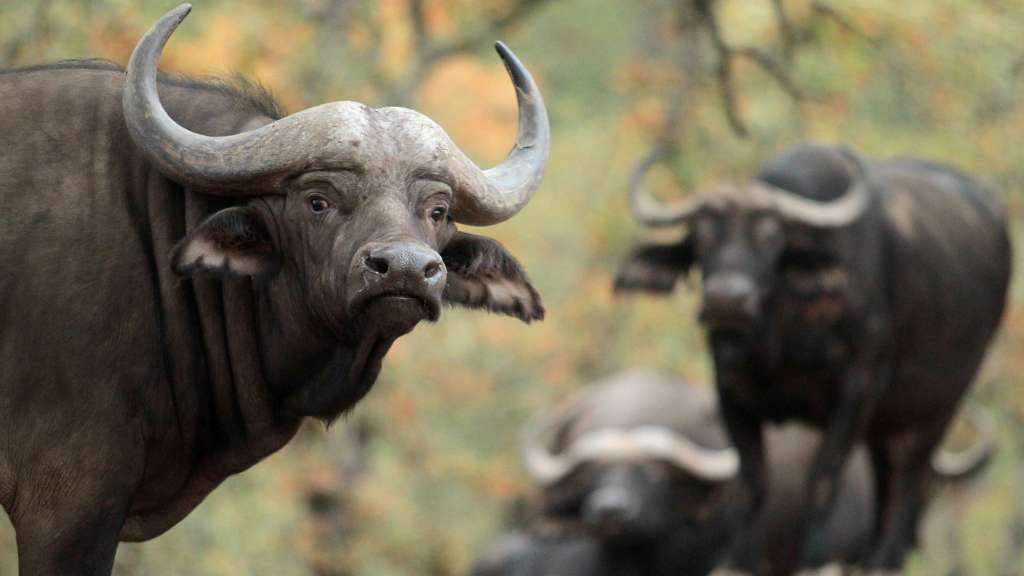
Cape Buffalo by John Burgess
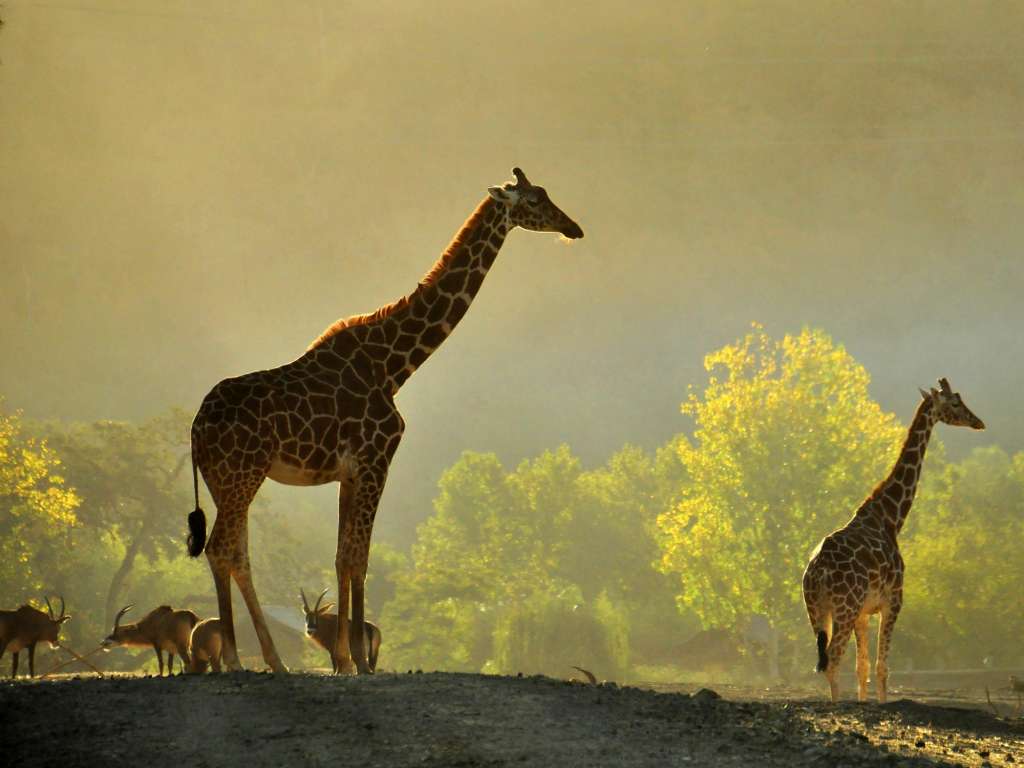
Giraffes and Roan Antelope on the Sonoma Serengeti by Nancy Albury
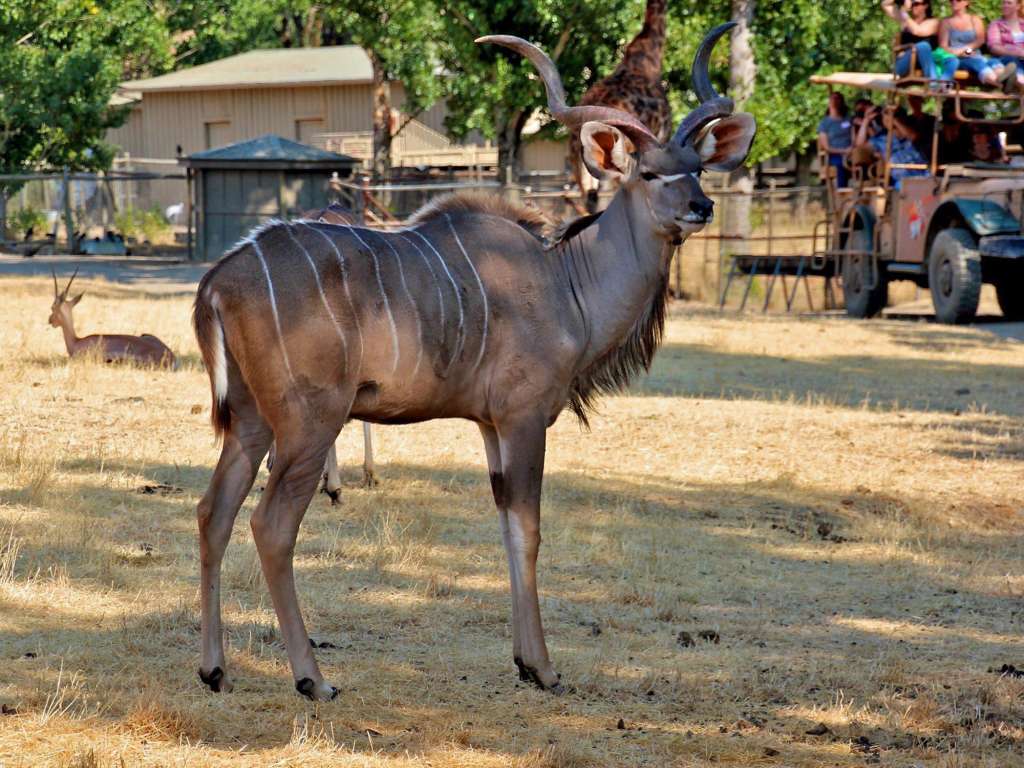
Kudu by Katie Desmond
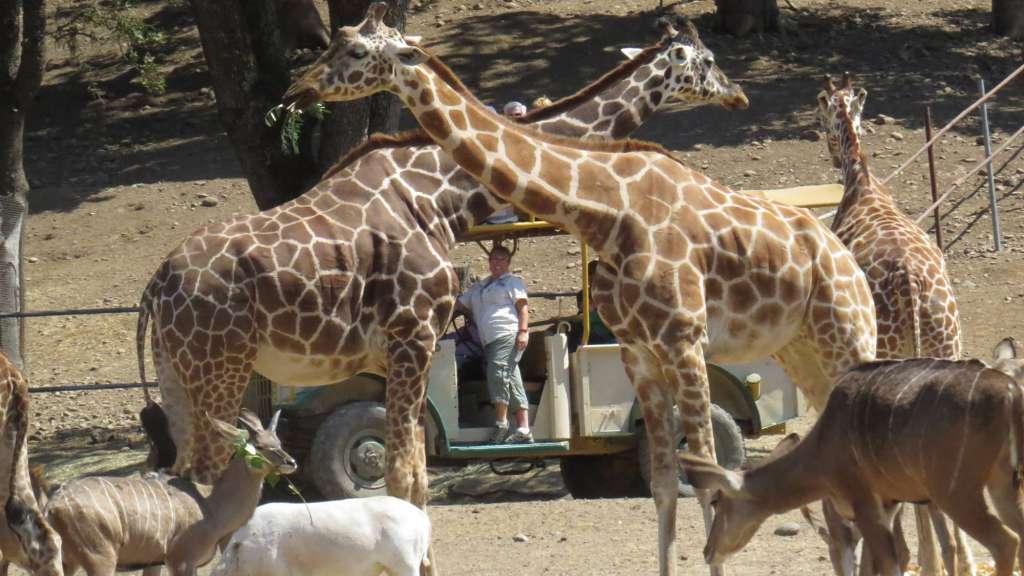
Safari with Giraffes by Mark Pressler

Ring-tailed Lemur by Marilyn Wyett
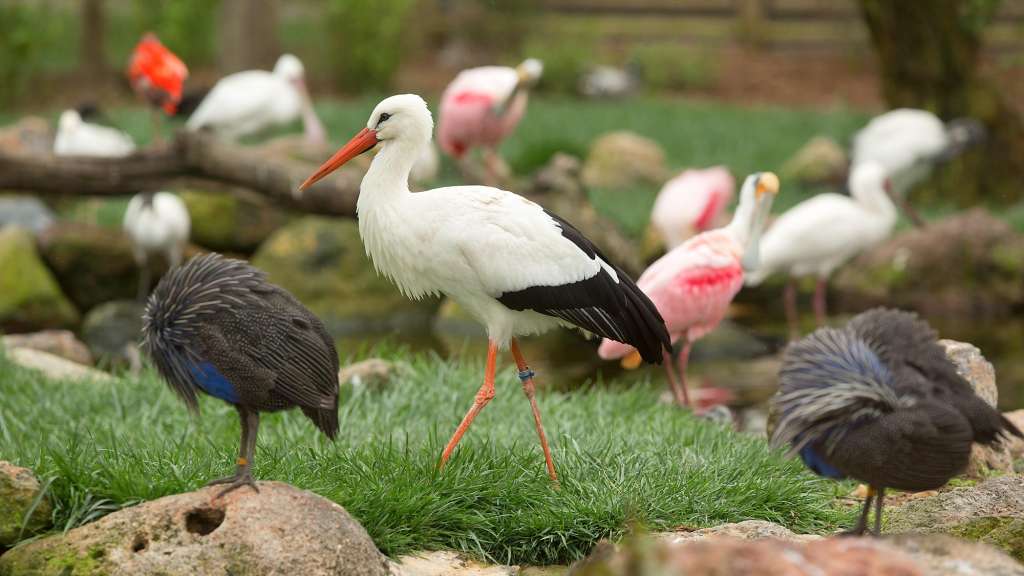
Amari Oasis Aviary by John Burgess
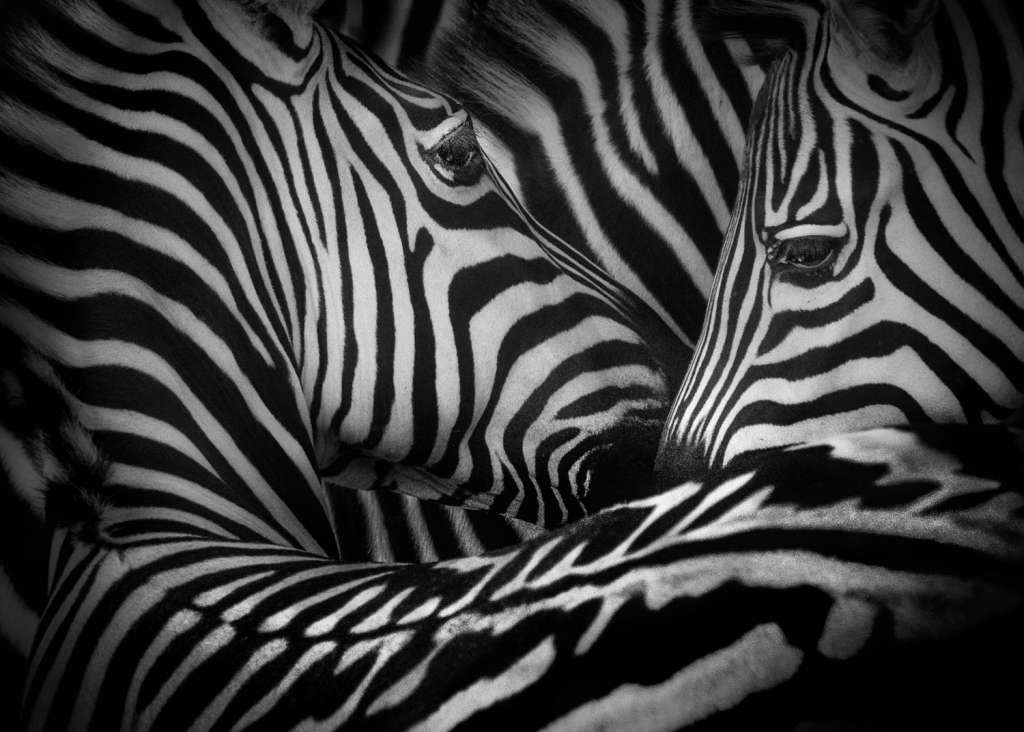
Zebras by Nancy Goodenough
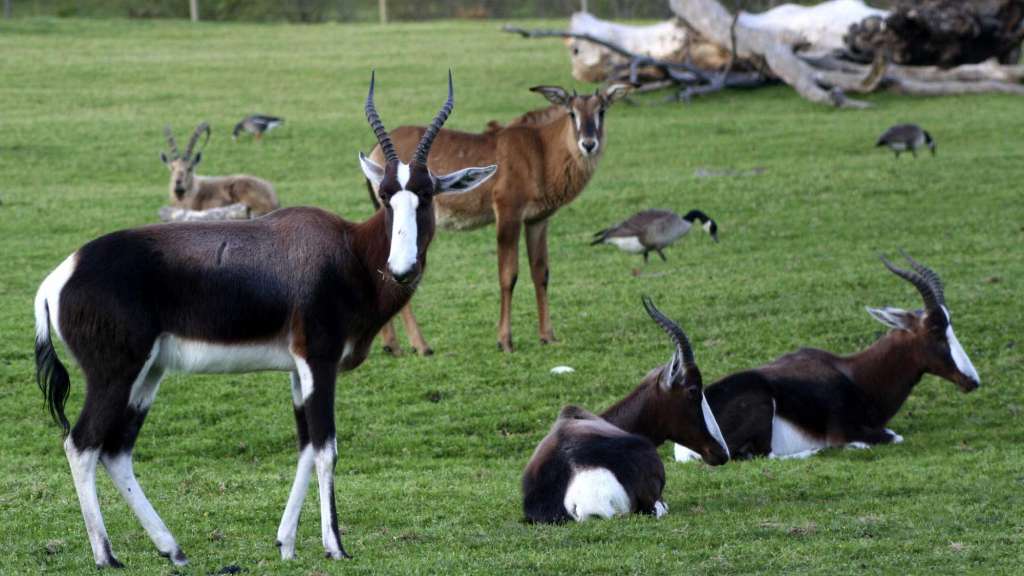
Bontebok and Roan Antelope
We will keep fighting for all libraries - stand with us!
Internet Archive Audio

- This Just In
- Grateful Dead
- Old Time Radio
- 78 RPMs and Cylinder Recordings
- Audio Books & Poetry
- Computers, Technology and Science
- Music, Arts & Culture
- News & Public Affairs
- Spirituality & Religion
- Radio News Archive

- Flickr Commons
- Occupy Wall Street Flickr
- NASA Images
- Solar System Collection
- Ames Research Center

- All Software
- Old School Emulation
- MS-DOS Games
- Historical Software
- Classic PC Games
- Software Library
- Kodi Archive and Support File
- Vintage Software
- CD-ROM Software
- CD-ROM Software Library
- Software Sites
- Tucows Software Library
- Shareware CD-ROMs
- Software Capsules Compilation
- CD-ROM Images
- ZX Spectrum
- DOOM Level CD

- Smithsonian Libraries
- FEDLINK (US)
- Lincoln Collection
- American Libraries
- Canadian Libraries
- Universal Library
- Project Gutenberg
- Children's Library
- Biodiversity Heritage Library
- Books by Language
- Additional Collections

- Prelinger Archives
- Democracy Now!
- Occupy Wall Street
- TV NSA Clip Library
- Animation & Cartoons
- Arts & Music
- Computers & Technology
- Cultural & Academic Films
- Ephemeral Films
- Sports Videos
- Videogame Videos
- Youth Media
Search the history of over 866 billion web pages on the Internet.
Mobile Apps
- Wayback Machine (iOS)
- Wayback Machine (Android)
Browser Extensions
Archive-it subscription.
- Explore the Collections
- Build Collections
Save Page Now
Capture a web page as it appears now for use as a trusted citation in the future.
Please enter a valid web address
- Donate Donate icon An illustration of a heart shape
Heia Safari - Marsch des deutschen Afrika-Korps - Martin Schönicke - Werner Plücker Ein Musikkorps der Flak-Artillerie und ein Flak-Soldatenchor Leitung: Musikmeister Victor Heidersberger
Video item preview, share or embed this item, flag this item for.
- Graphic Violence
- Explicit Sexual Content
- Hate Speech
- Misinformation/Disinformation
- Marketing/Phishing/Advertising
- Misleading/Inaccurate/Missing Metadata
plus-circle Add Review comment Reviews
2 Favorites
DOWNLOAD OPTIONS
In collections.
Uploaded by Musik Damals on August 4, 2021
SIMILAR ITEMS (based on metadata)

IMAGES
VIDEO
COMMENTS
German East Africa (German: Deutsch-Ostafrika) (GEA) was a German colony in the African Great Lakes region, which included present-day Burundi, Rwanda, and t...
German East Africa was the most populous of the German Empire's colonies, whose land area was double the German mainland of the time at nearly one million sq...
Heia, heia, Safari. Submitted by 1011110110101101001001 on 2019-02-17. Submitter's comments: Text: A. Aschenborn Music: Robert Götz - 1921. Translation. Hurra Safari . How often have we walked. On this narrow negro path, Through the middle of the desert, When early morning approaches .
"The parliament of the Federal Republic of Germany (West Germany) voted in 1964 to fund the back pay of the askaris still alive. The West German embassy at D...
heia heia safari. 2. Und wenn auch noch so wild der brit'sche Löwe brüllt, es nützt ihm nichts sein großes Maul, wir jagen ihn zu Tod. Denn Jäger, die sind wir im weiten Jagdrevier; Das deutsche Korps in Afrika heia heia safari. 3. Und ist die Heimat weit und ist auch heiß der Streit, wir schlagen, wo auch immer wir dich treffen Engeland.
Anmerkungen zu "Wie oft sind wir geschritten (Heia heia Safari)" „Heia Safari" war ein 1920 publiziertes , kriegsverherrlichendes Jugendbuch von Paul von Lettow-Vorbeck, das von den Nazis in die Grundbuchliste für Schülerbüchereien aufgenommen wurde und noch bis 1952 in neun Ausgaben mit einer Gesamtauflage von 281.000 Exemplaren erschien.
Heia, heia, Safari. Hans Aschenborn 1921. Die Liedarchäologen Erst nach dem Verlust der Kolonien als Folge des verlorenen Weltkrieges entstand das verklärende Lied von Hans Aschenborn. Leben und Herrschaft in den Kolonien werden als Abenteuer dargestellt, sodass sich das Lied bis weit nach dem 2. Weltkrieg z.B. in Pfadfindergruppen einer ...
heia heia Safari! Und wenn auch noch so wild der brit'sche Löwe brüllt, Es nützt ihm nichts sein großes Maul, Wir jagen ihn zu Tod. Denn Jäger, die sind wir im weiten Jagdrevier; Das deutsche Korps in Afrika heia heia Safari! Und ist die Heimat weit
Re: Help on song translation "Heia Safari" (2 version) by SQ37 » 07 May 2013, 23:01. Hello, Here is the translation of the Afrika Korps version. Will work on the other too. Through the desert sand, hot and sunburned, men are going on a major hunting. with loud fanfares of the hallali.
German:Der Marsch wurde komponiert von Martin Schönicke. Der Text ist von Robert Götz (1921).Liedtext:1.Wie oft sind wir geschrittenauf schmalem Negerpfad,w...
Heia, heia, Safari! 4. Tret' ich die letzte Reise, die große Fahrt einst an, auf, singt mir diese Weise statt Trauerliedern dann. Daß meinem Jägerohre, dort vor dem Himmelstore, es klingt wie ein Halali: Heia, heia, Safari! Musik: Hans Anton Aschenborn Text: Robert Götz Addeddate 2023-09-20 20:31:42
Composer (s) Fritz Sotke. Wir sind des Geyers schwarzer Haufen is an interwar-era German marching song. Composed around the 1920s, the lyrics of the song are sourced from the poem Ich bin der arme Konrad [1] by the Bavarian poet and artillery officer Heinrich von Reder (1824-1909). The melody of the song is arranged by German songwriter and ...
In October 1966 the public broadcaster WDR (Westdeutscher Rundfunk) screened the TV documentary "Heia Safari", written by the journalist Ralph Giordano. It caused one of the greatest TV scandals in the Federal Republic during the 1960s. The program painted a very gloomy picture of Germany's colonial presence in Africa. It also attacked the unbroken positive memories of this chapter of ...
Heia Safari ! Marschlied der deutschen Afrikakämpfer Schönicke - Plücker Musikkorps des Luftnachrichen-Regt. des Oberbefehlshabers der Luftwaffe Leitung: Musikmeister Erich Kiesant mit Chorgesang Video Item Preview
Heia! Heia Safari!
Marine World/Africa USA was an animal theme park located in the Redwood Shores area of Redwood City, California. [1] The park was named Marine World when it first opened in 1968, before merging with a land-animal park called Africa USA in 1972. In 1986, the park relocated to Vallejo, California, and is now known as Six Flags Discovery Kingdom .
The idea was to create a place for elderly Iranians in the United States, based on the Kahrizak Charity Foundation, a nonprofit that provides care and a living environment for the elderly and handicapped in Iran. The driving force at Noor is its executive director, Nazila Safari, a medical doctor in the U.S. and Iran.
Safari West Presents! Heirs to Our Ocean. Saturday April 27, 2024 | 8:00pm - 8:30pm. Conservation Dinner Series: April Peebler of Heirs to Our Oceanjoins us in the elephant room after dinner to give a talk about our oceans. Explore Share.
Heia! Hei! Heia Safari! Und saßen wir am Feuer. Des Nachts wohl vor dem Zelt, Lag wie in stiller Feier. Um uns die nächt'ge Welt; Und über dunkle Hänge. Tönt es wie ferne Klänge. Von Trägern und Askari: Heia! Hei! Heia Safari! Addeddate 2022-07-08 11:19:14 Identifier heia-safari_202207
German military march
If you or a member of your party has any special needs, please don't hesitate to contact us at 707 566-3667. Let us help you plan the safari adventure of a lifetime at Safari West! 400 Acres of Exploration. From cheetahs to lemurs, giraffes to wildebeest, there's always something amazing waiting just around the bend.
Heia Safari - Marsch des deutschen Afrika-Korps - Martin Schönicke - Werner PlückerEin Musikkorps der Flak-Artillerie und ein Flak-Soldatenchor Leitung:...
Wie oft sind wir geschritten,auf schmalem Negerpfad,wohl durch der Steppe mitten,wenn früh der Morgen naht.Wie lauschten wir dem Klange,dem altvertrauten San...